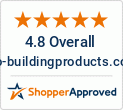Havelock Wool Insulation - Sheep Wool Insulation for Homes and Other Buildings
Havelock Wool Insulation is a healthy and effective option for insulating every part of your home or commercial building. For related products, check out:
Environmental Information
The manufacture of sheep wool insulation requires 90% less energy to manufacture than mineral wool insulation. In use, the durability and moisture control properties of wool allow for a higher level of performance and longevity, retaining its insulating properties for the life of the building. Wool is naturally fire-resistant and is treated with borax so as to heighten its vermin and insect resistance.
Advantages
- Controls condensation, wool absorbs and releases moisture yet doesn’t lose its thermal performance, wool can, in fact, absorb up to 40 percent of its own weight and remain dry to the touch.
- Wool actually heats up when absorbing moisture by up to 45°F. This increases the dew point temperature, reducing the risk of condensation.
- Wool absorbs harmful gases, e.g., formaldehyde, and then locks them up permanently. Man-made insulation emits gases.
- A better insulator compared to glass fiber insulation, requiring 10 percent less thickness to achieve the same insulating factor.
- Glass fiber thermal performance deteriorates dramatically when moisture is present; wool’s performance is unaffected.
- Wool will last for the life of the building due to the resilience of wool; glass fiber may compact and require topping up after 10 years.
- Wool is truly sustainable. A yearly clip of wool is available as a by-product of livestock farming. Mineral wool depletes the world’s resources.
- Wool is a “Carbon sink;” it actually locks up CO2; man-made wool pollutes CO2 during its manufacture.
- Very low energy is required in its manufacture, requiring 85 percent less energy than man-made products.
- Biodegradable at the end of its life.
- Safe to handle, with no skin or respiratory problems typical of mineral wool.
- Wool is naturally fire-Retardant
- Lastly, sheep wool insulation is a product of choice from the consumer's perspective, who continue to express their concerns with mineral wool insulation.
Why Havelock Wool?
Havelock Wool sources only the best fibers for its wool insulation. Driven by time, experience, science, and technology, the fibers Havelock uses are dynamic. They are sheared from a specific breed of sheep best suited for insulation.
Havelock does not make its insulation from wool scraps. Instead, they process high-quality wool fibers through their proprietary manufacturing process. This yields a uniform, high-performance, long-lasting product.
Sheep Wool Insulation R-Value
R-value means resistance to heat loss. The higher an insulation’s R-value, the greater its insulating properties are. Sheep wool insulation R-value equals or often surpasses that of conventional insulation materials. Havelock Wool offers both wool batts and blown-in insulation. The R-values of each product are 3.6 per-inch and 4.3 per-inch respectively. The extremely high integrity of a wool fiber allows it to outperform the synthetic competition, while decreasing impact on the environment.
Description:
Havelock Sheep Wool Insulation is healthy, high-performance insulation made of 100% wool. It is sustainably harvested in New Zealand and mechanically processed in the US without the use of any chemical binders. The inherent characteristics of the wool fiber provide an exceptional R Value, moisture management, passive indoor air filtration, and superb sound absorption. Further, Havelock Wool insulation is Class A rated for both fire hazard and flame spread.
Features & functionality
Batt and loose-fill insulation can be used in all insulation applications. Fast, easy, and safe installation requiring no special protective clothing. Class A rated for Fire Resistance and Smoke Development. Treated with boric acid to resist insects. Wool does not support the growth of mold. Passive air filtration — amino acids in wool bond with harmful chemicals No off-gassing — natural characteristics make sheep wool insulation void of harmful chemicals
Environment & materials Improved by:
A uniquely simple process which employs repurposed carding machines, electric motors, needle punches and simple cutting stations Havelock Sheep Wool Insulation is 100% wool — sustainable and renewable. Sheep eat grass blessed by sunshine and rainfall. All SKUs are 100% wool ie no synthetic mix. There are no chemical binders and no high heat is required. No toxic flame retardants as wool is naturally self-extinguishing. Wool is compostable at end of an extended useful life. Certifications, rating systems & disclosures: Bureau of Household Goods and the Services, Certified Insulation Material Declare, Red List Free Health Product Declaration ASTM E84 - Class A ASTM C518 - Thermal Conductivity ASTM C423 - Noise Reduction Coefficient WUFI Analysis













